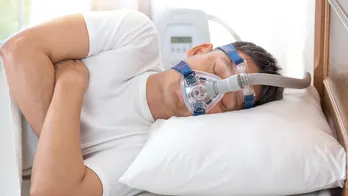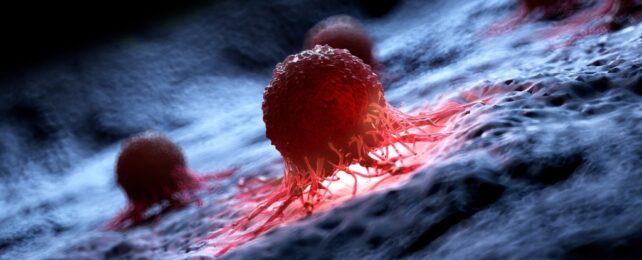Doctors Discover a New Medical Condition Unique to Breakdancers
For those of a certain age, Coneheads is an iconic 90s film. But for breakdancers, it seems, developing a cone-shaped head can be an occupational hazard.
According to a 2024 medical case report, a breakdancer who'd been performing for 19 years was treated for "headspin hole", a condition also known as "breakdancer bulge" that's unique to breakdancers. It entails a cone shaped mass developing on top of the scalp after repetitive head-spinning. Additional symptoms can include hair loss and sometimes pain around the lump.
Approximately 30 percent of breakdancers report hair loss and inflammation of their scalp from head-spinning. A headspin hole is caused by the body trying to protect itself. The repeated trauma from head-spinning causes the epicranial aponeurosis – a layer of connective tissue similar to a tendon, running from the back of your head to the front – to thicken along with the layer of fat under the skin on top of the head in an attempt to protect the bones of skull from injury.
The body causes a similar protective reaction to friction on the hands and feet, where callouses form to spread the pressure and protect the underlying tissues from damage. Everyday repetitive activities from holding smartphones or heavy weights through to poorly fitting shoes can result in callouses.
But a cone-shaped head isn't the only injury to which breakdancers are prone, however. Common issues can include wrist, knee, hip, ankle, foot and elbow injuries, and moves such as the "windmill" and the "backspin" can cause bursitis – inflammation of the fluid filled sacs that protect the vertebrae of the spine.
A headspin hole isn't the worst injury you could sustain from breakdancing either. One dancer broke their neck but thankfully they were lucky enough not to have any major complications.
Others, such as Ukrainian breakdancer Anna Ponomarenko, have experienced pinched nerves that have left them paralysed. Ponomarenko recovered to represent her country in the Paris 2024 Olympics.
As with other sports, it's unsurprising to hear that the use of protective equipment results in the reduction of injuries in breakdancing too.
But breakdancers aren't the only ones to develop cone shaped heads.
Newborns
Some babies are born with a conical head after their pliable skull has been squeezed and squashed during the journey through the vaginal canal and the muscular contractions of mother's uterus.
A misshapen head can also be caused by caput secundum, where fluid collects under the skin, above the skull bones. Usually, this condition resolves itself within a few days. Babies who've been delivered using a vacuum assisted cup (known as a Ventouse) – where the cup is applied to the top of the baby's head to pull them out – can develop a similar fluid lump called a chignon.
Vacuum assisted delivery can also result in a more significant lump and bruising called a cephalohematoma, where blood vessels in the bones of the skull rupture. This is twice as common in boys than in girls and resolves within two weeks to six months.
If you've ever seen newborns wearing tiny hats in the first few hours of their life, then one of these conditions may be the reason.
Some children may also present with "cone-head" due to craniosynostosis, which occurs in about one in every 2,000-2,500 live births.
Newborn skulls are made up of lots of small bony plates that aren't fused together, which enables babies' brains to grow without restriction. Usually, once the brain reaches a slower growth pace that the bones can keep up with, the plates fuse together.
In craniosynostosis, the plates fuse together too early creating differently shaped heads. Surgery can prevent brain growth restriction but is usually unnecessary if the child hasn't been identified as having an shaped head by six months of age.
Adam Taylor, Professor and Director of the Clinical Anatomy Learning Centre, Lancaster University
This article is republished from The Conversation under a Creative Commons license. Read the original article.



